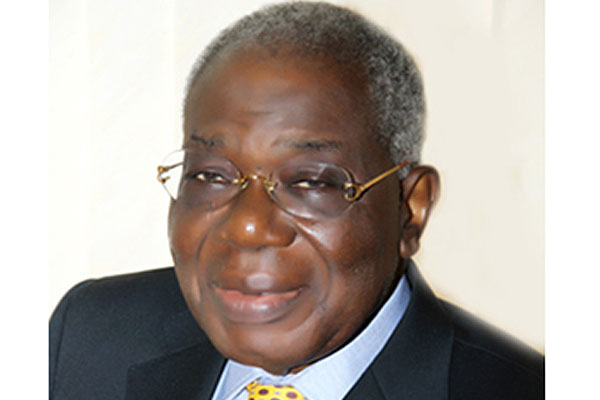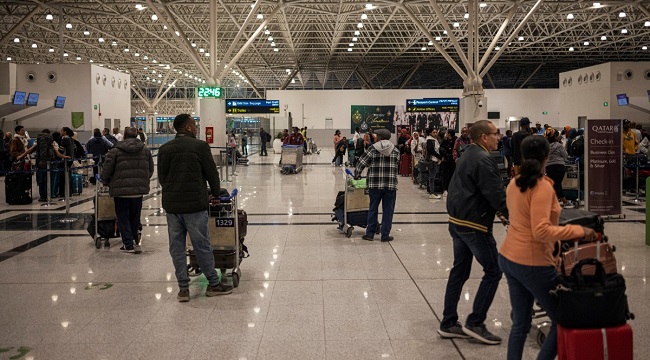Former Head of Interim Government of Nigeria, Ernest Shonekan on Tuesday said Nigeria’s infrastructure deficiency will remain persistent despite the federal government’s effort at transforming this critical aspect of development.

Mr Shonekan said this after he led the governing board of the Infrastructure Concession Regulatory Commission (ICRC), which he chairs, to present the 2011 annual report and audited financial statement of the commission to President Goodluck Jonathan in the presidential villa, Abuja.
He enumerated the challenges confronting the commission in the realisation of its goals as: inability to mobilise long term funding for project development, inability to commit Ministries, Departments and Parastatals (MDAs) to a stable and coherent pipeline of Private Public Partnership (PPP) and poor project preparation by MDAs.
Other challenges identified by Mr Shonekan are: inability to enforce vital aspects of the ICRC act in its current form, absence of coherent infrastructure investment programme, non-integration of PPP projects into the national planning framework and paucity of funds for the commission’s operations.
“Addressing these challenges is critical to the success of ICRC and the attainment of the infrastructure component of your transformation agenda,” Mr Shonekan said.
Consequently, he said it will require the political will of the Presidency and all the others to make sure that the country infrastructure is developed; adding that without infrastructures, there will not be much progress.
Mr Shonekan, who spoke to journalists at the end of the presentation, said “It is not only in this country that we have infrastructure deficit. If you look round now, even the developed countries have infrastructure deficits. The way forward is what everybody seems to be doing; and that is to see how they can reduce that deficit. So, each and every one of us have to put our thinking cap on to see how we can bridge that gap within a short period of time.
“With all these disasters that have been happening round the world, even western countries which started their infrastructural development well before us they are now thinking of doing fresh infrastructures because the infrastructure they had in the last century are becoming antiquated. We have an opportunity now to be able to do our own infrastructures. I think the best thing is to get people who are interested in the development of infrastructures to assist us in doing our own.
“That is why we said we will need the political will of the Presidency and all the others each and every one of us must have to contribute our own quota to make sure that we developed our own. Without infrastructures, there will not be much progress.
With the foundation laid and policy guidelines in place, Mr Shonekan said it was now “time to really work hard to make sure that we attract investors because infrastructure development is not a short term thing. It is a long term thing.”
He also pointed out that “nobody will come to invest in the country if he is not sure of the returns especially if it is a long term project. He will want to make sure that he is able to get something.”
On encouragement being given to the private sectors, he said “I think we are encouraging them enough, but we still have to do more because we are not competing against ourselves here we are competing against the rest of the world. Money will go to where they can earn better returns for their investments. We have to make sure that we start laying the red carpets for investors who are willing to come. In spite of all the challenges, we have to do more.”
The chairman of the ICRC earlier indicated that the commission recorded some achievements since its inauguration in 2008. Within its first two years “the commission recruited key staff, developed organisational processes and engaged MDAs and other stakeholders.”
It also developed a National Policy Framework for PPP, held regional engagement workshops across the country “to secure the buy-in of stakeholders” on the policy and issued operational guidelines for PPP to MDAs. The commission also worked on bridging institutional knowledge gap and “collaborated with states to set up their PPP units, transfer best practices, provide a legal, policy and regulatory environment that is conducive to private sector investment in infrastructure projects.”
Between 2010-2012, Mr Shonekan said the board focused on harnessing the commission’s regulatory role and cap its achievements with the winning of the Africa’s Investor Award in South Africa as well as the 2010 Public Private Partnership Award of the Commonwealth Business Council.
Presenting the commission’s 2011 report, Mr Shonekan said it received a little less than N1.1 billion appropriated for it and expended N1.016 billion.
“The sum of N325, 811,000 was brought forward from 2010 financial year and the balance in the capital vote of N8.5 million was moved forward to 2012,” He said.
He said out of this N325, 763,039.45 was spent as the remaining N47, 960.55 “was returned to the Consolidated Revenue Fund.”




